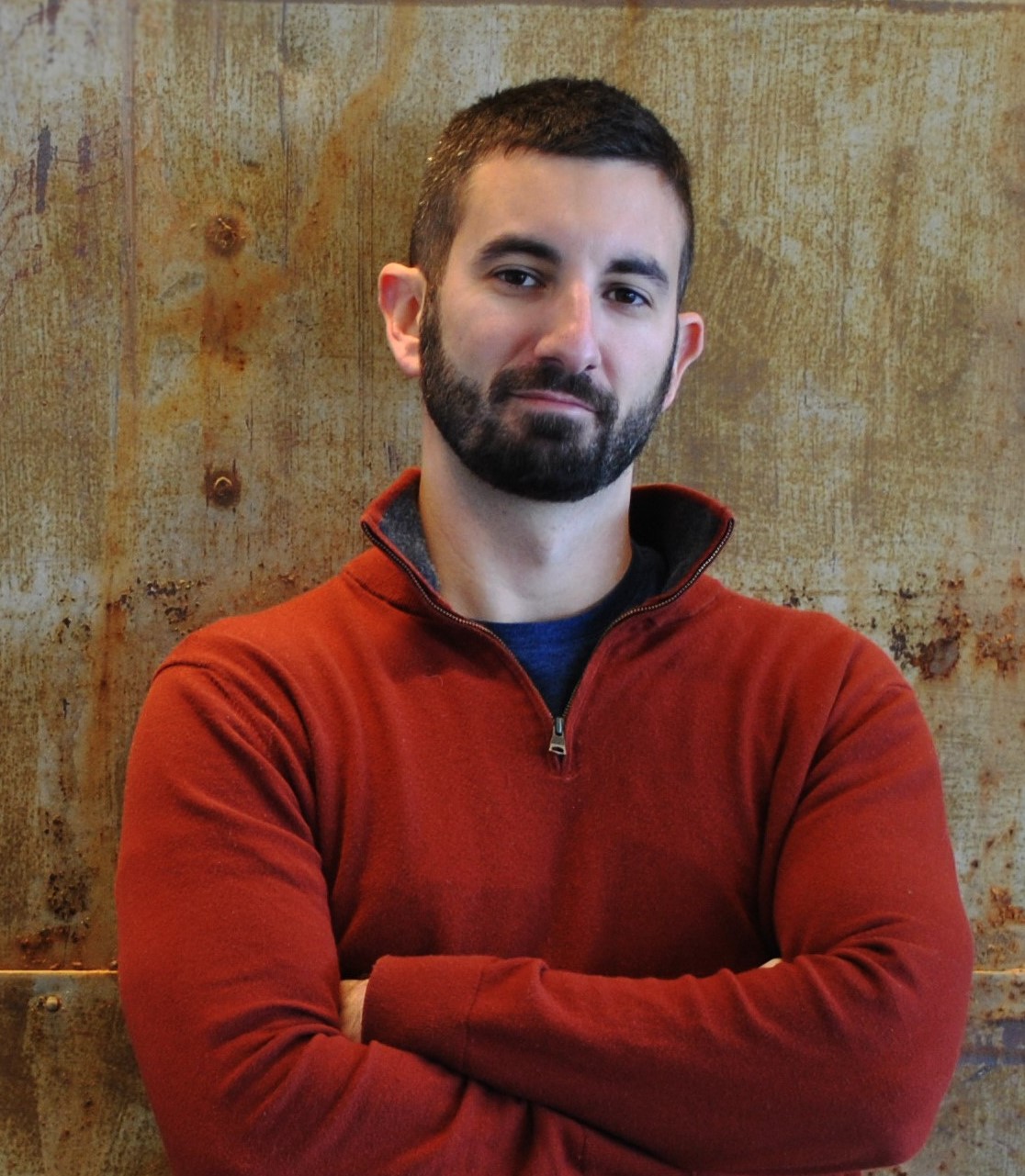More Than Law: Defending Personal Injury and Work-Life Balance
Liana Nobile, a trial attorney specializing in insurance defense litigation, predominantly handles personal injury lawsuits stemming from one major client's everyday business operations. Her ability to balance professional excellence with a healthy work-life balance exemplifies the value of expertise, effective time management, and refusing to be defined by her job. Liana details her overarching litigation strategy -- meticulously preparing as if heading to trial, though trying a case to verdict is extremely rare. She is a 2013 graduate of Seton Hall Law School.
Transcript
Kyle McEntee:
We're joined today by Liana Nobile, a 2013 graduate of Seton Hall Law School and an insurance defense litigation associate at Maron Marvel. Let's start by having you describe what it is that you do.
Liana Nobile:
I'm a trial attorney. So that means I often am in the office, but just as often can be before a judge arguing motions or preparing for a trial or going to trial, which is a rare instance these days.
On the insurance defense side of things, I do mostly personal injury defense work. So we're not the ones bringing the lawsuit, but we're the ones defending it. And our clients are largely self-insured companies or insurance companies themselves that have clients who maybe got in a car accident or own a business where somebody was hurt.
Kyle McEntee:
So when you look at your roster of clients, what does the makeup look like?
Liana Nobile:
The firm has plenty of clients, but my job is 90% working for one self-insured company the way that this particular company likes to have things structured is they have various levels of counsel, starting with the highest, which is in-house counsel working down to national counsel, regional counsel, and then local counsel, which handles their New York and New Jersey portfolio of personal injury litigation. And that's where I step in. And then I have a handful of other clients as well that fall more in line with what you might see at another insurance defense firm.
Kyle McEntee:
Can you talk a little bit about the difference between regional and national and local counsel?
Liana Nobile:
I like to think of local counsel kind of as the first line of defense, boots on the ground person. The in-house counsel really sees things from the overarching umbrella view and then they'll assign certain cases to the national counsel who handles things on a national basis. They then assign a chunk of the country over to the regional counsel, who handles things on a regional basis. And then the regional counsel will divvy up their portfolio of work to the boots on the ground local counsel. And they're the ones who have a really in-depth and working knowledge of the state courts that they work in. And they're the ones with the capacity and the ability to actually go into court. But if the case is venue in New York, you need somebody who's barred in New York, who's going to be able to go into the New York courts, litigate there, appear there, conference there, all the things that go into handling a case. So it's my name on the answer. It's me going to the court. But then I have reporting duties up to the various counsel at all the different levels.
Kyle McEntee:
So how does this differ with the smaller clients that you have?
Liana Nobile:
It's different in a lot of different ways. I think the most important way that it differs is just kind of the level of oversight. When you're working with all these different players, you have to make sure that everybody's on board with everything you do. They have strict timelines for when they want things reported, how they want things reviewed and approved, what kind of authority you have to take, what steps in the case. Whereas sometimes with other, maybe a major insurance carrier that's just assigning you, you're not necessarily reporting to any other attorneys absent your boss. You have a lot more autonomy over how you wanna handle a case
If you're working for a carrier, you may get a construction defect case, a car accident case, an employment case, all in one, depending on what kind of insurance policies that they write that they then hire you to handle if there's a dispute involved. This company has many different portfolios of work, but I work on their litigation team. In my experience, and this may or may not be true across the board, but I see the same kinds of claims pretty much over and over again. It's very similar work, at least in the portfolio that I handle.
Kyle McEntee:
So I'm curious to know about the life cycle of a case when it comes in. So, a plaintiff files a complaint. What's your first step?
Liana Nobile:
So I think that probably mirrors what you would see in other insurance defense cases to a point. So in my previous job, it was much more of a traditional insurance defense job where I would get a file, it would have a complaint and maybe some claims notes in it. And I would look at all of it, start to prepare an answer, and then I would have to call the actual client. So I'm sure you've heard the words tossed around and maybe some of your listeners have too. But oftentimes when you're working for an insurance company, they talk about the tripartite relationship where there's the attorney, the insurance company, but then there's the actual client. So even though the insurance company is paying the bills, the attorney has a duty and an obligation of confidentiality and everything else that comes along with that to the client. So thinking about a car accident scenario in a more traditional insurance defense case. Let's say they rear end somebody at a red light, they get sued, they send it off to their insurance company. Let's say it's Geico. Geico hires them a lawyer pursuant to the policy that they've taken out and they say, “okay, you're going to have to call Joe Smith and talk to him about this car accident.” So one of the very first things I would do would be to pick up the phone and call Joe Smith and talk to him about that.
But in the world I live in now, one of the very first things I actually do is work on trying to get tender accepted. When I talk about tender, it means that there's a clause in a contract or another legal obligation that one entity owes to another entity to defend them against certain claims. And sometimes there are obligations that you say when you enter these contractual obligations. Like if I get sued for x, y, and z reasons, you actually have to defend me, other company. So oftentimes you'll see in various relationships between property owners and people that rent storefronts from them, for example, the store operator will have the duty to indemnify the property owner if somebody, for example, trips and falls on the sidewalk outside, or perhaps in the parking lot. And then everybody gets sued, they'll do what's called a tender demand and they'll tender their defense over to another insurance carrier and say, based on our contract or based on the law, you actually have a duty to cover my claims here.
So that's always the first analysis that I'll do. And sometimes it's successful and sometimes it's not. And depending on how that shakes out, I'll either then shift myself into a monitoring role our indemnity counsel or I'll remain in the case and actually defend it. And we'll go through the case just like you would with any other one. So we'll file the answer, respond to any discovery, prep and conduct any depositions that may need to happen, work with co-defendants to get experts, go through the whole nine yards up to settlement or trial, depending on what ends up being necessary.
Kyle McEntee:
The bulk of the work that you're doing with cases happens during discovery. Can you get into a little more detail on what that entails?
Liana Nobile:
I like to use this analogy. Back when I would make that initial phone call to, say, the driver of the car that I might have been assigned to represent. Those people are not often in the courts. I'm in the courts all the time. It's what I do every single day. Discovery, I probably deal with discovery maybe four times a week. It's not scary to me. But for somebody on the receiving end of a lawsuit, not only is being on the receiving end of a lawsuit really scary, but once you start using terms of art like discovery and interrogatories and depositions, they freak out -- with reason -- because those are really scary words, especially when you have no idea what they entail.
So when I would initially pick up the phone to talk to the defendant driver of a car in a motor vehicle accident case, I would really try to break it down for them and bring it back to like the most simple answer, like the most simple explanation that I could. It's the equivalent of Ice-T and Mariska Hargitay on SVU taking their blood splatter analysis measurements and crime scene tape everywhere, investigating a crime scene. Because they have everything right there. They have the bodies, they have the gun casings, they have the fingerprints, they have the blood splatter. They can collect and take photos of all this juicy evidence and then solve the case.
But in civil litigation, you don't necessarily always have that luxury because if you get into a fender bender or even a major car accident, typically within the day that your cars are gonna be towed away, you're gonna go to the hospital, and you're going to move on with your lives. And there's no quote unquote crime scene that we can go back to recreate, unless somebody took some pictures at the scene of the accident. So discovery is where we get to do all that recreating.
And the very first thing that happens are interrogatories, which is just a really fancy way of saying questions. They're written questions. Depending on the state that you're in, some of them are just prescribed by court rule. New Jersey has form ones that you answer, New York doesn't. But most law firms do have their own standard form of initial interrogatories. New York actually doesn't have interrogatories. If you take interrogatories, you waive a deposition. So there's all these nuances that you have to be really aware of. But they have other vehicles for getting this information out. And you'll just get basic questions. What was the weather? What was the date? What was the time? What is your full name? Who are the witnesses? You'll also ask for pictures, video, surveillance footage, tons of other different things that you can possibly ask for, witness statements, police reports, that may help, again, recreate this crime scene, which isn't really a crime scene, that you don't have in a civil litigation case. Pretty basic stuff that helps you start investigating the case.
And then based on all of those answers, you'll be able to get medical records to prove or disprove a plaintiff's claimed injuries. You'll have the benefit of taking a deposition, which is another fancy word for conversation, where you'll sit down, much like the recording of a podcast, especially now because so many of them are conducted on Zoom, and ask a bunch of questions. When was the accident? Where was the accident? How did it happen? What were you wearing? All these things to kind of get at, for the defense side, asking the plaintiff the questions the nature and extent of claimed injuries and for the defense side they're trying to pin you down on liability generally.
Kyle McEntee:
Right. I think that's really important to point out, right? It's that not only are you as the defense asking the plaintiffs questions, they also get to ask your clients questions. So what level of involvement do you have with preparing your clients for the questions that are being asked of them during discovery from the other side?
Liana Nobile:
At this point in my career, I'm trusted, finally, to go out and do that on my own, for the most part. Working on behalf of just a regular insurance company where they assign a claim out, I have pretty much full autonomy of those cases. I can do a preparation session with my client where we'll sit down and go through a much more detailed but similar version to everything that we just spoke about here. I'll explain to them how the deposition takes place in a conference room with a court reporter at one end and you'll be sworn in and it's got the same weight in effect as if you're in the courtroom before a judge, even though there's no judge there. And we'll do practice questions and go through documents and whatever I feel needs to happen for them to be fully prepared to testify.
With the client that I service, they are very protective of their employees. And therefore that prep session always takes place with myself, sometimes somebody else from my office, especially if that person might be actually covering the deposition, and always somebody from the regional or national level, just to give the client peace of mind. So that is a little more supervised, but at this point I've been working with this company for a while now. I have a fantastic working relationship with the people who are superior to me and they trust me to be able to interject and explain things because I am the one with the working knowledge of the file. They have a less intimate knowledge of that. So there may be little things I can pick up on that they either don't realize are important or don't remember or just it helps, you know, I'll be the one in the room with the witness. So we wanna get a comfortable relationship with them.
Kyle McEntee:
So how did you learn how to effectively manage these clients?
Liana Nobile:
Lots of trial and error. A really great benefit of working with them for so long is that I've been able to put myself in a position to kind of anticipate their needs, their wants, and even anticipate some of what their questions may be. And it's ever evolving. The service that I provided to them when I first started working at the firm is wildly different than the service I provide to them now. And I've been able to have a really open communication with the people at the higher levels about how we can even address their needs and wants and concerns better.
Kyle McEntee:
So the ultimate conclusion of discovery is that you have a much better understanding of the facts and you can then apply some law, apply some strategy. How do you transition from taking what you've learned to doing something with it?
Liana Nobile:
So one of the very first bosses I had, it may have even been the judge that I clerked for, told me you always wanna look at your case, even from the drafting of the answer, as if you're preparing for trial. And to always work backwards. So I like to think of what the ultimate issues are going to be in a case, whether it's liability being in dispute, or maybe liability's not in dispute and my client has accepted liability, now we're just fighting damages.
And I like to see what my goals need to be if we're presenting all of this to a jury. And then I like to work backwards. So I always am thinking how something is going to look to the regular person, complete and total lay person with no knowledge of the law. What do I need to do to accomplish my goals of what my client wants to see? Where we're fighting liability and we've been talking about a rear end hit for a while, so let's just use that as an example. And I need to show perhaps that they were hit first and pushed into another car. If they allege in the answer that I barreled on the gas when the light turned green and pushed into them or whatever it may be, I'm going to find a way to deny that and try and push liability off onto a co-defendant. I'll make sure I have proper cross claims or counterclaims, depending on what's appropriate against other co-defendants or bring them in as a third-party defendant right from the get go if liability is what we're going after. So you'll always tee those things up to limit your exposure and limit your liability.
If for example, you're fighting damages, you want to get a medical expert that's going to interpret x-rays or MRIs in a favorable manner or do a physical evaluation of a client that shows they're actually walking pretty good despite alleging that they now have a limp or whatever they may be claiming as their injuries. And at deposition, you wanna draw out whatever the other claims may be. So perhaps at the deposition of our fictitious co-defendant, who rear-ended my client's car and pushed me in, I want to get testimony that they weren't paying attention or were on their cell phone, stepped on the gas too fast, whatever it may be that's going to help me push it away.
And even though it's incredibly possible that most cases will settle before you get anywhere near a trial, realistically, in this day and age, it's just so rare that you go to trial in civil cases. I always act as if I am going to trial. And I always, always act as if I'm filing a motion for summary judgment, whether or not I will eventually have authority from the person paying the bills to do so, or whether or not we even get to that point in the case. I always have that in the back of my mind where we're heading and that helps to frame everything else that happens in the case.
Kyle McEntee:
So you really just can't think linearly. You have to address all the moving parts all at once. That way you're prepared for anything.
Liana Nobile:
Yeah, I think that's a good way of putting it for sure.
Kyle McEntee:
So it sounds like it's a lot of work to do this. Is your firm paid hourly or are these flat fee arrangements?
Liana Nobile:
So that is a question that is above my knowledge. I know I get a paycheck and I know that I move on. I'm sure that they have a mix of both where they're billing clients hourly and have flat fee arrangements. I don't know what those are and I don't ever have to worry about seeing that. One of the things that's great about working for such a large firm is that I don't have to worry about that. I go to my office. I do my work, I bill my time on our timekeeping software. I close my computer at the end of my day and I move on. We have a full billing department who has to deal with that headache. And I have not had to think about how my clients are billed since I worked at a plaintiffs firm when I first got out of law school. And it is a blessing to not have to worry about that.
I didn't start my own firm for a reason and I have friends, two really good friends who I started working with. We all started on the same day or week, a couple of firms ago. And they just hung out a shingle and they are so wildly successful and it is a stress I just don't want. They thrive and I'm so happy for and proud of them. And I will refer any case to them that I possibly can because I trust them and I know they're doing great work. But that is work that is just not for me. I can sit, I can write, I can argue, I can talk to you, I can counsel with a client, but please don't ask me, please don't ask me to try to deal with billing.
Kyle McEntee:
Well, it's interesting because on this show, we often talk to proprietors who have their own firm, whether it's a small firm or a solo practice. And the refrain I'm constantly using is that they're small business owners who happen to be in the business of providing legal services. But for you, it is not the business of all you have to worry about. You're worrying about how do I do good legal work for my client and keep their confidences and keep them coming back.
Liana Nobile:
Yeah, absolutely. And I have to say, I've really found a nice sweet spot with the size firm that I'm at. I'm not at one of those big, big white New York City firms where I might just be getting out of the doc review stage at this point in my career, 10 years out. I've had the benefit of being trusted with a file from start to finish. They know I'm a good lawyer. I've had the chance to hone my skills. But I also don't have to worry about keeping the lights on and keeping other people employed and being able to pay my paralegal and my office manager and my malpractice insurance and remembering to do all that. There are people that do that and then I can be the lawyer, but I'm not just doing discovery all day. I'm really lucky to be where I'm at. It's a great spot.
Kyle McEntee:
So one other contrast, though, with the big firm, like the white shoe firms, is that this job doesn't pay quite like those firms either, right? But there's trade-offs with that, right? Because I think from our prior conversations, you actually have quite a nice work-life balance.
Liana Nobile:
I have a fantastic work-life balance. I would say that is due to many factors. I know myself and from the jump, and even in law school, my friends would laugh at me because I would give up a Friday night of studying to go see a concert for a band I really liked in the city because I knew that I wouldn't be the best student I could be if I was solely focused on one thing and that was the only thing that defined me. I knew I needed to have many other outlets in order to be a successful person. And I knew I couldn't be a good student without feeling like I was succeeding as a person. So that is something I've carried with me through my practice.
I definitely had to put some things away for a while, but now I'm pretty good, not to pat myself on the back too much, but I know how to manage a file, manage a case, get my billable hours done, get my work done, be a good employee, and also be a good Liana. And that's really important to me. So I actually work a second job. I teach dance and work at a dance studio part-time. And it's something I'll never give up. It means so much to me to be able to do that, to work with these students, to see them develop. My graduating class this year has been with me since they were four, I think. And now they’re graduating high school.
But it takes planning and it takes effort. I'm not going to go and teach or take a dance class if I have a trial coming up. Then I'm going to find a substitute to handle that stuff for me. But I've been able to know and plan. My bosses and my co workers trust me enough to know that I'm still going to be that responsible employee. One of the trade offs that you mentioned is absolutely taking a lower salary. But that's okay because want to be able to enjoy the money that I make. And I don't know that I'd be able to do that if I had to bill 3,000 hours a year at a big firm. So I'm really, I'm fine with that trade-off. It makes sense for me as a person.

 Kyle McEntee
Kyle McEntee






